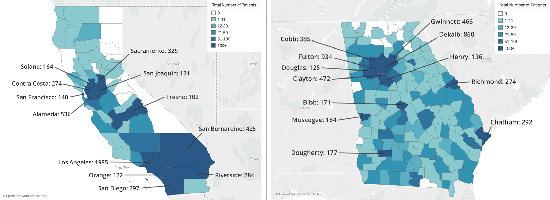
Hemoglobinopathies Research
Hemoglobinopathies is the medical term for a group of blood disorders and diseases that affect red blood cells. These disorders include both sickle cell disease (SCD) and thalassemia.
Hemoglobinopathies monitoring means finding out the number of people with these conditions and how having a hemoglobinopathy affects their health, so that researchers and health care providers can ultimately improve the health of people with hemoglobinopathies. By studying the number of people with hemoglobinopathies over time, we can find out if their numbers:

Check out California and Georgia 2005 SCDC data
- Are rising, dropping, or staying the same
- Differ by area of the country/region
- Differ among subgroups of people (by age, race, or ethnicity)
The Centers for Disease Control and Prevention (CDC) has completed several projects: the Registry and Surveillance System for Hemoglobinopathies (RuSH), the Thalassemia Data Collection Project, Public Health Research, Epidemiology, and Surveillance for Hemoglobinopathies (PHRESH), and Blood Safety Surveillance among People with Blood Disorders.
Current efforts that focus on SCD and thalassemia involve two new projects: the Sickle Cell Data Collection (SCDC) program and a Transfusion Complications Monitoring project.
Additional Resources


































No hay comentarios:
Publicar un comentario